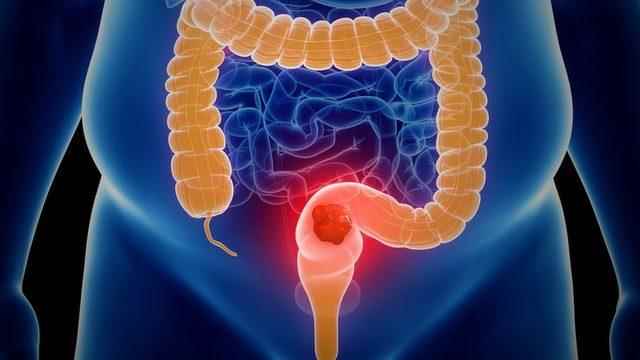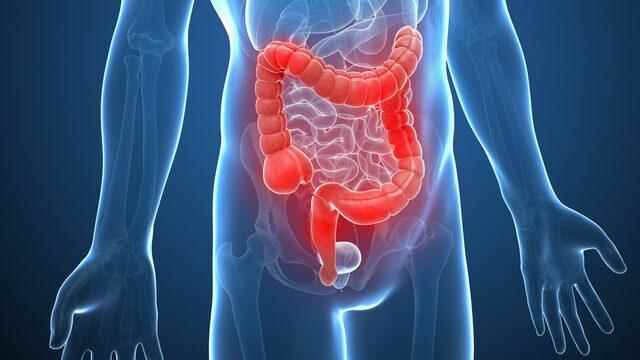Deborah James, a former British teacher, known for her campaigns on cancer awareness and the creator of the podcast “You, Me And The Big C” on the BBC, has died at the age of 40.
Diagnosed with bowel cancer in 2016, James started donation campaigns and was knighted as a reward for the awareness he created.
A mother of two, James has managed to raise hundreds of thousands of pounds to be used in bowel cancer studies and research.
During her campaigns, Deborah James drew attention to the importance of stool control in the early detection of bowel cancer.
We answered the questions about bowel cancer, which is a common type of cancer.
HOW CAN I DETECT BOOT CANCER?
There are three key things to look at:
Unexplained blood in your stool (which may be bright red or dark red in color).
Any changes in your stool, such as going to the toilet more often than usual, or becoming harder or more runny.
- Abdominal pain and bloating felt when your abdomen is swollen and tight.
However, there may also be other symptoms such as:
If you have experienced rapid weight loss
If you feel that you cannot empty your bowel properly after using the toilet,
- If you feel more tired or dizzy than usual.
Having these symptoms doesn’t necessarily mean you have bowel cancer, but if you notice them for three weeks or more and feel unwell, it is recommended that you see a doctor.
Bowel cancer can sometimes make it impossible for stool to pass through the intestine. This can cause severe abdominal pain and constipation. In this case, you should immediately apply to health institutions.
HOW DO I CONTROL MY FEET?
It is useful to take good care of your stool when you go out on the toilet. Also, never be afraid to talk about it.
You should watch out for rectal bleeding (around the anus) as well as blood in your stool.
Bright red bleeding can come from hemorrhoids but can also be caused by bowel cancer.
Dark red or black blood in your stool may come from your intestines or stomach; It can be worrying.
You may also notice a change in your frequency of going to the toilet compared to normal.
Or you may feel that you are not emptying your bowels properly and that you are not going often enough.
The Bowel Cancer Foundation in England recommends keeping a symptom diary before going to the doctor.
Doctors know many different people with a variety of bowel problems and their symptoms. Therefore, do not hesitate to inform about the changes in your routines and bleeding.
WHAT CAUSES BOOT CANCER?
No one is sure exactly what causes bowel cancer. But there are some things that can make the development of cancer more likely:
The older you get, the more likely you are to get cancer. The situation in the intestine is no different. Most cases occur in adults over the age of 50.
Consuming plenty of red meat and processed meats such as sausage, bacon and salami.
Smoking increases the risk of many cancers.
Drinking too much.
Being overweight or obese.
- Having polyps in your gut that can turn into tumors.

IS IT HERITICAL?
In most cases, bowel cancer is not inherited. However, if you have any close relatives diagnosed before the age of 50, you should tell your doctor.
Certain genetic conditions, such as Lynch syndrome, may mean that people have a much higher risk of developing bowel cancer. However, these can also be prevented if doctors are aware of this situation.
HOW CAN WE REDUCE THE RISK?
Scientists say that more than half of bowel cancers can be prevented by people with a healthier lifestyle.
That means exercising more, consuming more fiber and less fat, and drinking about six to eight glasses of water a day.
But it’s also important to go to your GP with any symptoms and agree to cancer screening if it’s recommended.
HOW DO I TEST?
Colon cancer screenings in Turkey; It is done free of charge every two years at Cancer Early Diagnosis, Screening and Education Centers (KETEM), Community Health Centers (TSM), Healthy Life Centers (SHM) and Family Health Centers (ASM) for male and female population between 50-70 years of age.
The Ministry of Health recommends screening with colonoscopy every 10 years for people between the ages of 50-70.
Individuals with a family history of colon polyps, colon cancer, ulcerative colitis, Crohn’s Disease or hereditary polyposis or non-polyposis syndrome can be screened starting from the age of 40.
If you are in a younger age group and have symptoms, you should also consult your family doctor. You should not buy test kits that you can do alone. Because the results here can be confusing.
WHAT KIND OF TREATMENTS ARE THERE?
Bowel cancer is curable, especially if detected early.
Treatments can be tailored to individuals. Genetic tests can change the treatment to be applied in individuals.
According to the Ministry of Health in Turkey, different treatment options such as surgery, drug therapy (chemotherapy) and radiation therapy (radiotherapy) are applied in bowel cancer.
WHAT ARE THE DIFFERENT STAGES OF CANCER?
Stage one cancer – Small, but has not spread.
Second stage cancer – it is larger, but still has not spread.
Stage three cancer – has spread to some surrounding tissues, such as the lymph nodes.
- Stage four cancer – it spreads to another organ in the body, forming a secondary tumor.
